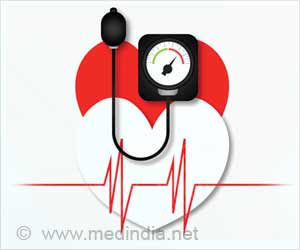The analysis found 21% of people hospitalized with COVID-19 and 11% of those who were not hospitalized for COVID-19 developed high blood pressure, compared to 16% of people hospitalized with influenza and 4% of those not hospitalized for influenza.
People hospitalized for COVID-19 were more than twice as likely and those not hospitalized are 1.5 times more likely to develop persistent hypertension compared to people hospitalized and non-hospitalized with influenza, respectively.
Advertisement
People infected with SARS-CoV-2 who were over 40 years old, Black adults or those with preexisting conditions, such as chronic obstructive pulmonary disease, coronary artery disease or chronic kidney disease, had an elevated risk of developing high blood pressure.
Persistent high blood pressure was more common among people infected with SARS-CoV-2 who were treated with vasopressor and corticosteroid medications during the pandemic.
The authors noted that the people in the study were primarily from communities with low socioeconomic status, which may increase their susceptibility to developing high blood pressure after COVID-19 infection. Other factors may also have contributed to the development of high blood pressure in the study patients, including the effects of isolation, psychosocial stress, reduced physical activity, unhealthy diet and weight gain during the COVID-19 pandemic.
The study’s limitations included that findings were restricted to people who interacted with the health system during the follow-up period and who might be more likely to have severe COVID-19; the possibility that some patients had undiagnosed high blood pressure; the possibility that vaccine status, which might affect severity of COVID-19 illness, may not have been captured in the health care system database if COVID-19 vaccines were administered outside of the system; and the potential for unintended patient selection bias in a retrospective analysis.
Researchers also noted that longer follow-up studies will be needed to determine whether the effects of COVID-19-related complications on the heart and blood pressure regulation may resolve on their own, or if there may be long-lasting effects on patients’ cardiovascular systems.
Reference :
- Incidence of New-Onset Hypertension Post-COVID-19: Comparison With Influenza- (https://www.ahajournals.org/doi/10.1161/HYPERTENSIONAHA.123.21174)
Source: Eurekalert



